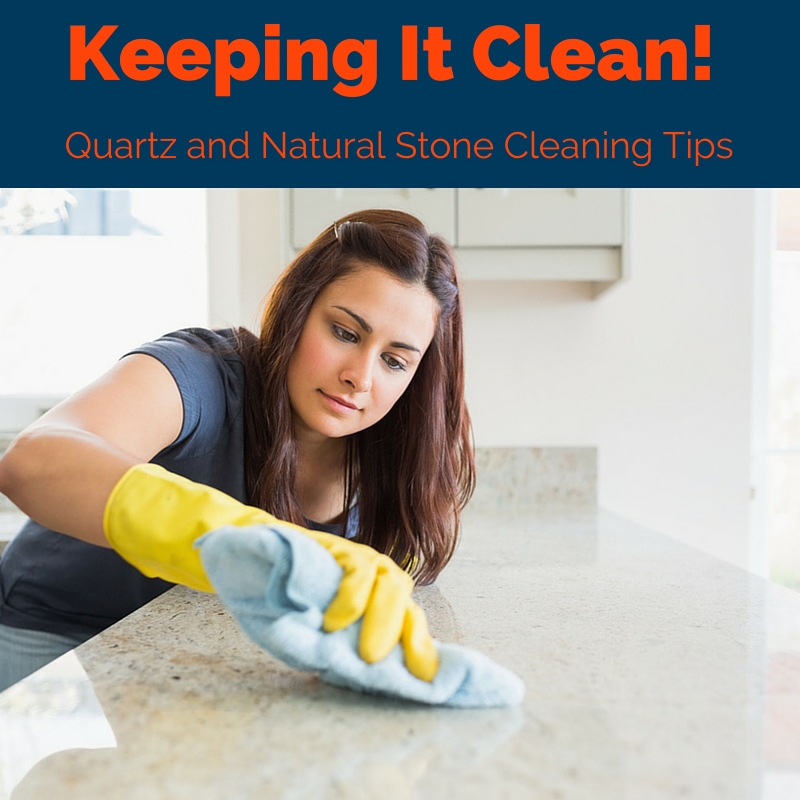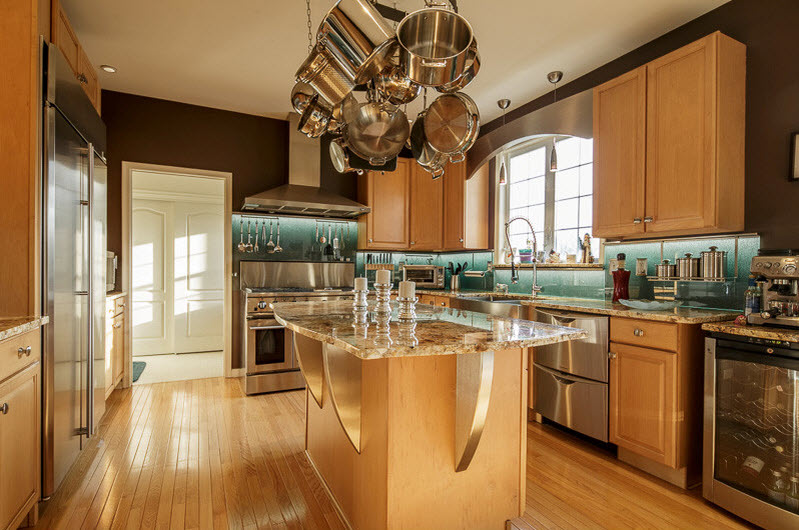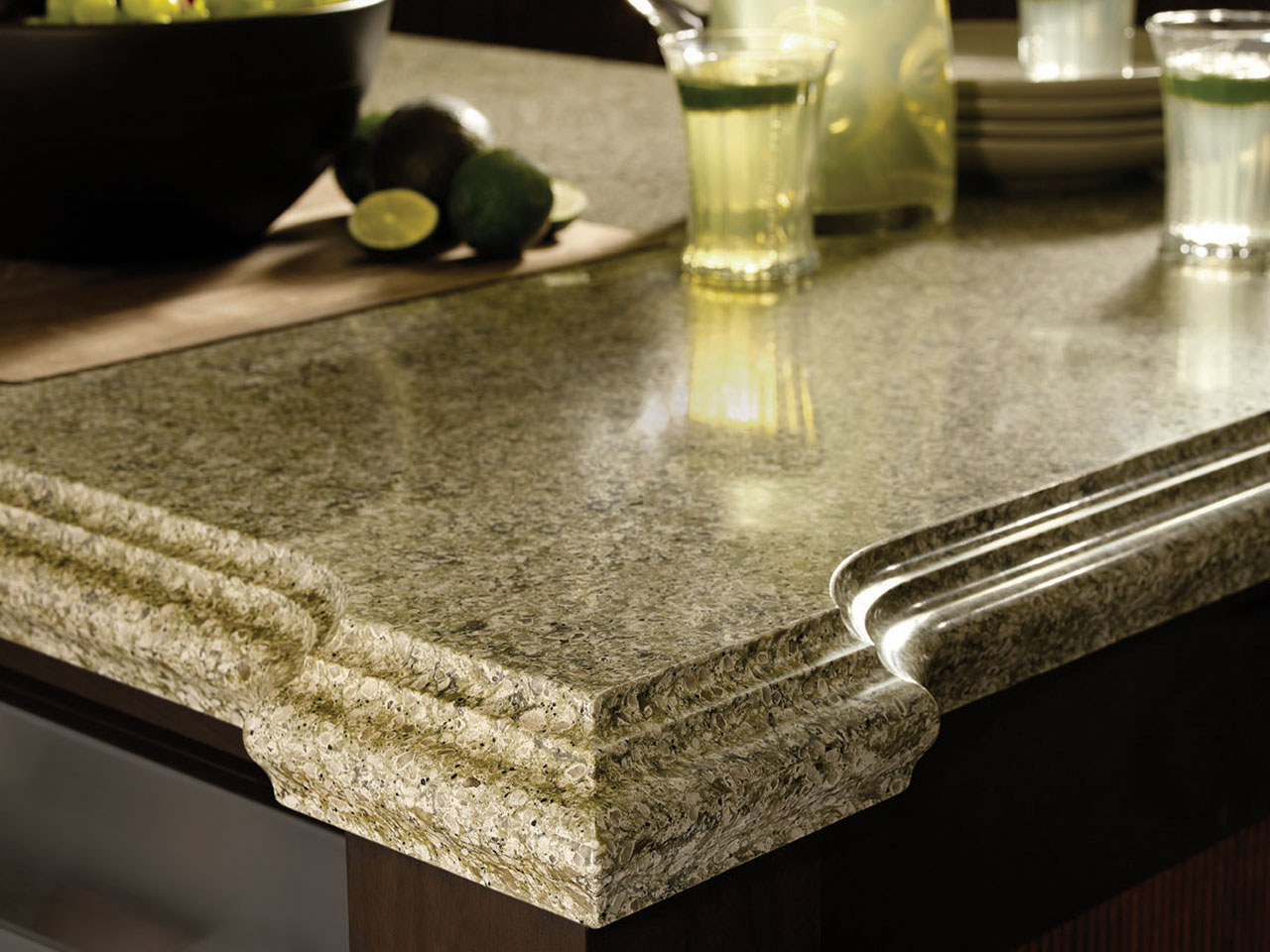Granite is normally a safe material for use in kitchens and other spaces in a home or business, and granite is not a material that is prone to harbor bacteria or residual effects from leftover fragments from food or drink. Even the CDC (Center for Disease Control) and other agencies have found that granite does not foster bacteria.
Like any other material, granite can be subject to developing bacteria or related problems if it is left in a wet or moist condition, or food and drink have been allowed to set and incubate for any length of time.
In order to avoid the possible development of bacteria or other issues, there are simple and cost effective ways to disinfect granite so bacteria has no chance of invading anyone’s granite countertops.
Disinfecting Solutions
One simple disinfecting solution that easily destroys bacteria is a two ingredient combination of dish washing detergent and good old isopropyl alcohol. All that is required is a few drops of the detergent and four tablespoons of the alcohol to create an concoction that will clean granite countertops quite efficiently.
Both the detergent and isopropyl alcohol can be bought at most any grocery store, drugstore or discount type store, as can a spray bottle to contain the mixture. The bottle should contain the measured ingredients and then filled with warm water so it almost reaches the top of the container. It should only be shaken in a gentle manner so as to keep excessive suds from developing and preventing the liquid from going through the spray nozzle opening.
How to Disinfect Granite Daily
Simply spray the solution directly on the countertop and cover a few small areas at a time. Let the solution remain on the countertop surface for a minute or so to allow time for disinfection to occur.
Lastly, the countertop should be wiped with a white cloth or towel to dry the areas cleaned. A white cloth is always the best route to take as a non-colored cloth will better absorb anything unsafe on the counter, plus, unlike a colored wiping cloth, no color will be transferred to the granite. This same process should be repeated for each section of the countertop until the whole counter is cleaned.
Cleaning Ingredients to Avoid (What Not To Use On Granite)
Any kind of abrasive cleaner, commercial or homemade, should be avoided for use on granite countertops. Also, any cleaner that contains vinegar or has acidic based ingredients should be avoided. The area of a granite countertop can be hurt with an abrasive cleaner and its surface dulled with acidic cleaners.
Other cleaning solutions to avoid with granite countertops are those with chlorine bleach and any kind of household cleaner or spray that is used for mirrors or windows. In addition, always read the labels on any kind of cleaner container and make sure that the ingredient hydrofluoric acid is not a part of any possible cleaner that is used. This acid could be damaging to any sealants that are used on granite.
Inhibiting Bacteria
In order to avoid the threat of encroaching bacteria on your countertops, consider disinfecting them on a regular basis. Also, rather than cutting or chopping food directly on a granite countertop surface, use a cutting board to avoid spills and damage. Food, drink, meat juices, and other liquids should be wiped up as soon as they happen. If not, there is a change of moisture accumulating and breeding bacteria. Finally, sealing the surface at varying intervals is one way to inhibit bacteria. Sealants should be applied at least once a year, or at the three year mark if the sealant provides protection for that period of time.
Maybe you are not sure how to keep your granite in pristine condition or whether you should further protect it with a sealant. Perhaps you just have general questions. Whatever your inquiry, simply complete the online contact form and a representative will get back to you with the answers you need.





